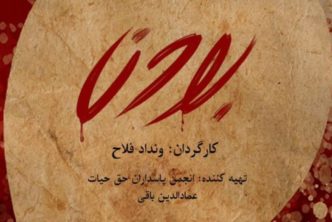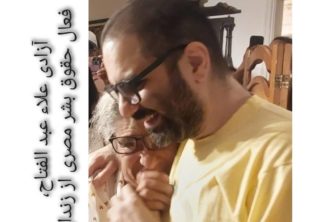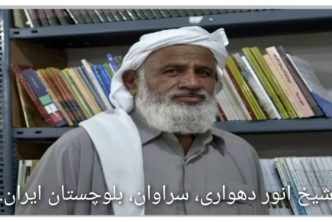Amnestyusa
Prominent Iranian Journalist and human rights defender Emadeddin Baghi was detained in Evin Prison on 14 October 2007 on charges of “endangering national security.” Amnesty International believes he has been imprisoned because of his work with his organization the Society To Defend Prisoners’ Rights and for his outspoken opposition to the death penalty in Iran. He had been given a suspended one-year sentence in 2003 and had also been given another three-year prison sentence on 31 July 2007.
On 26 December 2007, while in solitary confinement in Evin Prison in Tehran, he suffered the first of two seizures. He was taken to a hospital, where he had a second seizure. Despite this, he was returned to prison the following day. On 17 January 2008, he was transferred to a hospital and granted bail for one month’s treatment, until 26 February. His leave was again extended, but Emadeddin Baghi was returned to prison on 16 April 2008 He was brought before Branch 12 of the Revolutionary Court in Tehran for further interrogation on 7 May 2008. That day he suffered a heart attack; he was treated at the prison’s medical facility and sent back to his cell that evening. He found that his cell had been ransacked; his books, his writings, and the file he was preparing for his defense had been taken away. When his family were allowed to visit him on 13 May, they reported that he appeared very weak and pale.
On 29 April 2008, Emadeddin Baghi was acquitted by Branch 44 of the Appeal Court of his charges leading to his July 2007 conviction, including “activities against national security” and “publicity in favor of the regime’s opponents.” His 2003 conviction, however, still stands. Furthermore, new charges have been brought against him stemming from his criticism of the prison authorities’ treatment of another prisoner.
Amnesty International is concerned that Emadeddin Baghi is likely a prisoner of conscience, held solely for peacefully exercising his rights to freedom of expression. It is also concerned that he may be held in solitary confinement where he could be subjected to ill-treatment.
Emaddedin Baghi was arrested when he responded to a summons to appear before an interrogator at Branch 1 of the Security Unit of the General and Revolutionary Public Prosecutor’s Office. After Baghi’s arrest, court officials set a bail of 500 million rials (approximately US$50,000). While Baghi’s family was in the process of posting bail, Evin prison authorities arrived at the courthouse and announced that Baghi had to serve a 2003 suspended sentence. The court authorities revoked the bail, and prison officials immediately transferred Baghi back into detention. His lawyer said he has been charged with publishing secret government documents about prisoners obtained with the help of prisoners on security charges.
Emaddedin Baghi is considered one of Iran’s leading dissidents. The founder of the Society To Defend Prisoners’ Rights, in recent he years campaigned to defend prisoners’ rights and against the death penalty in Iran. Mr Baghi has been a tireless campaigner for human rights in Iran despite having his passport confiscated, his newspaper closed, suspended prison sentences passed against his wife and daughter and being jailed himself. The state-run Iranian news agency quoted an official saying Mr Baghi’s family had taken part in meetings to discuss toppling the government. He was previously jailed for three years on security charges for his writings about the serial murder of dissidents and intellectuals in Iran in the late 1990s. [See more information about Emaddedin Baghi below the action}
Take Action:
Ayatollah Mahmoud Hashemi Shahroudi
Ministry of Justice,
Ministry of Justice Building
Panzdah-Khordad Square
Tehran, Islamic Republic of Iran
Dear Your Excellency:
I am writing to you to express my concern about prominent Iranian Journalist and human rights defender Emadeddin Baghi, who has been detained in Evin Prison since 14 October 2007 on charges of “endangering national security.” I believe he may be imprisoned because of his work with his organization the Society To Defend Prisoners’ Rights and for his outspoken opposition to the death penalty in Iran. He had been given a suspended one-year sentence in 2003 and had also been given another three-year prison sentence on 31 July 2007. I am also concerned that he may be held in solitary confinement where he could be subjected to ill-treatment. Although he has been acquitted of charges leading to his July 2007 on appeal, his 2003 conviction still stands.
I urge you to ensure that Emaddedin Baghi is treated humanely while in prison, and that he be given access to his lawyer, to his family, and to any necessary medical attention. Furthermore, Emadeddin Baghi is a prisoner of conscience, held solely for peacefully exercising his rights to freedom of expression. I therefore urge that he be immediately and unconditionally released from prison.
Sincerely,
More information on Emaddedin Baghi
Emaddedin Baghi first went to prison in 2000, when he was given a three-year sentence for “attacking national security” for his writings about the serial murder of dissident intellectuals in Iran in the late 1990s. He was released on 6 February 2004. On leaving prison, he founded the Society To Defend Prisoners’ Rights. A Tehran revolutionary court sentenced him to another year in prison on 9 November 2004 for writing a book that accused the Iranian authorities of involvement in the murders of intellectuals and journalists in 1998. His newspaper, Joumhouriat, was closed by the government in 2003. In 2003, Judge Babayee of Branch 6 of the Revolutionary Court sentenced Baghi to a one-year suspended term for “endangering national security” and “printing lies” in his book, The Tragedy of Democracy in Iran.
Baghi’s family and lawyers report that since his release in 2003, the authorities have summoned Baghi to court 23 times.
Emadeddin Baghi also founded the Society of Right to Life Guardians in 2005, an organization that aims to abolish the death penalty in Iran. His two organizations produce reports on the situation of Iranian prisoners and gather data about death penalty cases in Iran.
Emaddedin Baghi also faces other politically motivated criminal charges: On 31 July 2007, Branch 6 of the Revolutionary Court sentenced him to three years in prison for “activities against national security” and “publicity in favour of the regime’s opponents” but he was not immediately made to begin serving the sentence at that time. The charges were related to his meeting and colluding to commit offences against national security, and for propaganda against the system for the benefit of foreign and opposition groups. His lawyer said that the evidence against him included media interviews and letters to the authorities regarding Ahwazi Arabs sentenced to death in connection with lethal bomb explosions in Khuzestan province. He has been outspoken in his criticism of the death sentences imposed in those cases. He had addressed one letter to the head of the Iranian Judiciary, Ayatollah Hashemi Shahroudi, stating that the legal proceedings for the Ahwazi Arabs had been flawed and the evidence against them inadequate.
Also on 31 July his wife, Fatemeh Kamali Ahmad Sarahi, and his daughter Maryam Baghi, were given three-year suspended prison sentences and five years of probation for taking part in a series of human rights workshops in Dubai in 2004. The charges were “meeting and colluding with the aim of disrupting national security.”
Shirin Ebadi, a Nobel Peace Prize winner and head of the Tehran-based Center of Human Rights Defenders, called Baghi’s imprisonment the latest sign of an intensifying government crackdown on civil society. “Unfortunately, pressure on Iran’s civil society continues,” Ebadi told RFE/RL’s Radio Farda on 15 October. “The arrest of Baqi is against Iranian law.” Amnesty International says the charges against him are politically motivated and aimed at “silencing the human rights defender’s criticism of the human-rights situation in Iran.” Reporters Without Borders said, “Baghi’s arrest is an example of the strategy of harassment and pressure being used against journalists by the Iranian authorities, who are trying to silence the growing number who are demanding the legitimate right to a free and independent press.”
Emaddedin Baghi’s first book, A Study about the Clerics, was banned by Ayatollah Khomeini as soon as it appeared.His book Realities and Judgments, which discusses the violent treatment of the opposition by ruling clerics, was published illegally and anonymously in 1991. The government sought and destroyed copies of the book. In 1999 and 2000, he and Akbar Ganji wrote investigative reports into the serial murders of more than 80 secular writers, intellectuals and political activists in the 1990s, exposing the involvement of the Ministry of Information. When his friend Saeed Hajjarian was shot in March 2000, he stated to the press that the responsible parties were inside the Revolutionary Guard, the Ministry of Information, the National Radio and Television and the police forces. A day after his statement hit the papers, Baghi was summoned to court and reformist newspapers were shut down. Baghi was sentenced to seven and a half years in Evin, reduced to three years on appeal. He spent the first two months in solitary confinement in a tiny cell.
He was detained by Iranian authorities at the Tehran airport on 4 October 2004 as he attempted to travel to New York to receive the 2004 Civil Courage Prize, awarded by the trustees of the Train Foundation (formerly the Northcote Parkinson Fund), and also to Montreal to participate in the Second World Congress Against the Death Penalty. His passport was confiscated and he has not been allowed to leave the country since then.
Emaddedin Baghi has recently made statements opposing the U.S. Government’s intention to provide funding for “democracy promotion” in Iran, saying that it would be counterproductive. He told journalist Negar Azimi in February 2007 “The [democracy] money is a blade. Our government accuses us of receiving money from the Americans. All of a sudden, my normal human rights work becomes political. I have one question: Why do I have to suffer when this money is going to pay for someone else’s salary in Washington?” (from “Hard Realities of Soft Power, The New York Times Magazine 24 June 2007) In a letter dated 18 May 2007 and addressed to Amnesty International, Human Rights Watch, Reporters Without Borders, the U.N. High Commissioner on Human Rights, and other human rights organizations, Emaddedin Baghi described the danger faced by human rights defenders in Iran who could be accused by the Iranian authorities of accepting U.S. government funding. He said, “I would like to state categorically that it is neither wise nor morally justifiable for the United States to continue its path, without due respect or concern for the specific harm and harassment the so-called democracy fund entails for human rights activists in Iran. It is not right for independent individuals and institutions inside Iran to pay the price for allocated funds that the United States government spends on broadcasting from the United States into Iran or for the activities of exiled Iranian groups that cooperate with various American organizations.” He further said, “This is why I hereby make a plea to you and your respected organizations to insist that the United States government change its ways or, in case of its insistence on allocating a yearly budget, make public and transparent the exact amount and recipients (individuals and groups) of these funds. In this way, problems are reduced for independent democracy and human rights activists in Iran. In addition, the United States government can no longer be accused of, willingly or unwillingly, being complicit with the suppressive forces in Iran which have been using the so-called democracy fund as an excuse to harass civil society activists.”
He wrote a 6 September 2007 letter addressed to a number of political parties and organizations in Iran, urging them to take a stand against the large number of executions that had taken place in recent months in Iran, citing at least 170 executions within the previous seven months. He wrote a lengthy article called ”The Bloodied Stone”, dated 2 August 2007, in which he argued against the practice of execution by stoning on a number of grounds, including on the grounds of human rights and the best interests of society and from the perspective of Islamic law and jurisprudence.
On 8 April 2008, Emadeddin Baghi was awarded the ‘International Journalist of the Year’ at the British Press Awards. One of the organization’s most prestigious awards, he was nominated by the Foreign Press Association. Citing his 25 years of activism, his research and advocacy on behalf of human rights, the judges also recognized the periods of time he has spent in prison. Since Emadeddin Baghi could not accept the award in person, he asked Amnesty International to collect the award on his behalf and read a short statement from him which referred to the struggles of Iranians for press freedom and the limitations placed on them.
Iranian legislation severely restricts freedom of expression and association and human rights defenders often face reprisals for their work in the form of harassment, intimidation, attacks, detention, imprisonment and torture. The Penal Code contains a number of vaguely-worded provisions relating to association and ‘national security’ which prohibit a range of activities, including those connected with journalism or public discourse which are permitted under international human rights law. Politically motivated criminal charges frequently result in the sentencing and imprisonment of HRDs. Many are subject to travel bans that prevent them from leaving the country.
http://www.amnestyusa.org/Iran/Prominent_Iranian_Human-Rights-Defender_Emaddedin_Baghi_Imprisoned/page.do?id=1221004&n1=3&n2=30&n3=922




